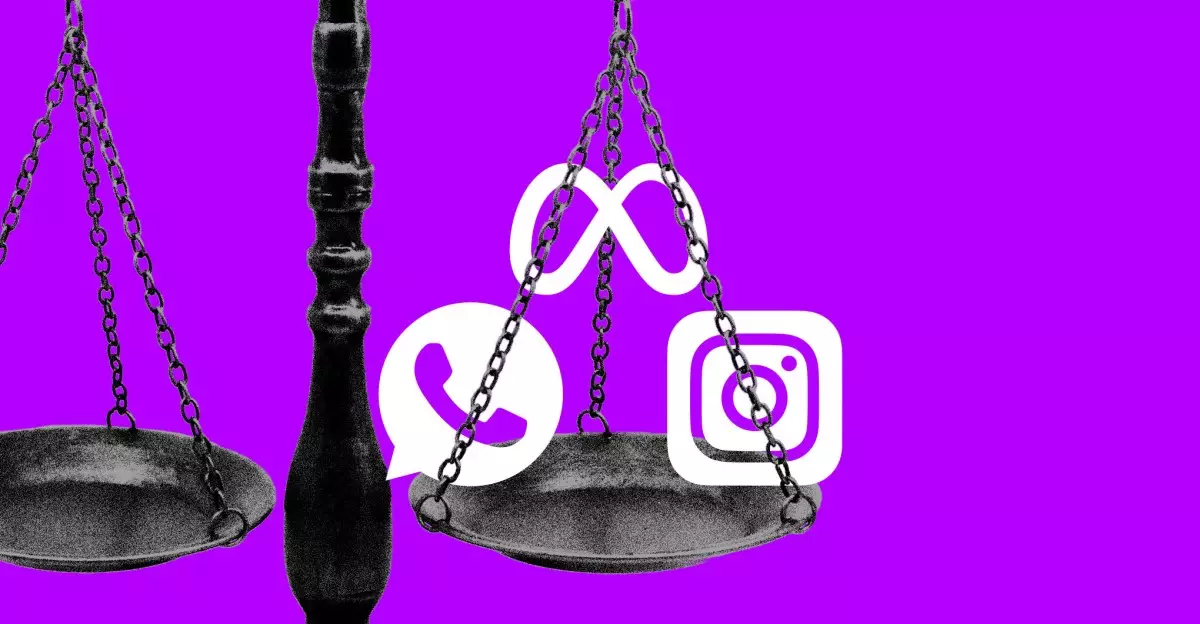In the realm of technology, few figures stir as much controversy as Mark Zuckerberg, the CEO of Meta Platforms, Inc. The recent antitrust trial initiated by the Federal Trade Commission (FTC) against Meta presents a critical and defining moment, scrutinizing the company’s acquisitions of WhatsApp and Instagram. These acquisitions, highlighted during Zuckerberg’s extensive testimony, serve not only as a lens into Meta’s business strategy but also reflect broader themes of innovation, competition, and the nature of digital communication in the 21st century. As the courtroom drama unfolded, it became clear that the stakes were high—not merely for Meta but for the future of digital policies in America.
Zuckerberg’s Defense: From Competition to Collaboration
Zuckerberg’s defense strategy primarily hinged on reframing the narrative surrounding his acquisitions. The sweeping allegations from the FTC suggested that Zuckerberg’s primary intention was to neutralize potential competition in the messaging and social media arenas. However, the testimony painted a different picture: that of an entrepreneur keenly aware of shifting user behaviors and market dynamics.
He emphasized that his purchase of WhatsApp was not simply a defensive maneuver but a recognition of the emerging need for private messaging solutions. Zuckerberg expressed conviction in the value of WhatsApp, arguing that its positioning could help Facebook navigate a significant pivot in user engagement—from public posts to private chats. This transformation in communication patterns is not merely a reflection of personal preference but aligns with broader societal trends where privacy increasingly dictates online interactions.
In an era where privacy and trust are paramount, this insight into Zuckerberg’s rationale resonates deeply. His assertion that he would pay “$19 billion again” for WhatsApp highlights a long-term vision that challenges the notion of “catch-and-kill” strategies apparently pursued to enforce a monopoly. It suggests a commitment to fostering a diverse ecosystem of communication platforms instead of quashing competition.
The Reality of User Growth: Surpassing Expectations
Meta’s acquisitions have led to explosive user growth that far surpassed initial forecasts. During the trial, Zuckerberg revealed that WhatsApp, initially projected to garner around 2 billion users by 2024, has instead nearly reached 3 billion users today. Such statistics underscore the actualization of Zuckerberg’s vision and refute the FTC’s claims of an insidious agenda.
Moreover, the financial implications are significant; Meta generates roughly $10 billion annually from advertisements driving engagements through its platforms, illustrating that these acquisitions did not just serve to eliminate competition but became vital assets within a larger monetization strategy. The case highlights a critical point often overlooked in discussions around competition—investments can lead to innovation and enhanced user experiences, benefiting not just the company but also the users it serves.
The Instagram Narrative: A Complex Relationship
The testimony also reflected on Instagram, another major acquisition wrapped in controversy. While the FTC argued that Instagram was snatched up to defang a direct competitor, Zuckerberg framed the merger as an opportunity for growth. Initially, he downplayed concerns over Instagram’s potential competition; it wasn’t until the app reached a staggering 1 billion users that Zuckerberg felt the urgency to pivot strategically.
What’s salient here is Zuckerberg’s insight into the organic growth of social networks and the necessity for integration without stifling the unique identity of each platform. By facilitating Instagram’s development and encouraging a trajectory that prioritized independence over an overt connection with Facebook, Zuckerberg aimed to cultivate a diverse user experience, effectively showcasing a modern, decentralized approach within the company’s portfolio.
Moreover, the friction between Zuckerberg and Instagram co-founders Kevin Systrom and Mike Krieger, particularly regarding feature integration with Facebook, revealed the challenges of balancing brand identities while simultaneously leveraging shared resources. This friction, while ultimately leading to departures, underscores the nuanced relationship within tech startups where creativity can often be at odds with corporate strategies.
Lessons for the Future of Digital Governance
The courtroom scene eventually transformed into a broader dialogue about the trajectory of digital governance. Nerdy debates on antitrust laws and the definitions of monopolistic behavior can often seem removed from the everyday experiences of users. However, they are crucial for shaping the landscape of innovation and competition that defines our digital lives. Zuckerberg’s testimony may very well be a case study—an insight into how technology leaders navigate both growth and competition amid evolving regulatory landscapes.
As we observe this trial’s outcome, it may influence not only Meta’s future but serve as a precedent for how profitability, creativity, and consumer relations can coexist in the tech ecosystem. In an age where digital platforms dominate our lives, understanding these dynamics could ultimately guide policies that both foster innovation and ensure fair competition. In the face of future challenges, Zuckerberg’s assertion that past acquisitions were pivotal for growth rather than stifling competition might resonate well beyond the walls of the courthouse, echoing in the halls of regulatory bodies worldwide.


Leave a Reply